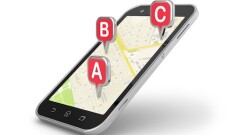Stocking up on water, shuttering the windows and even evacuating when appropriate are among the priorities when it comes to preparing for a major storm or other potential disaster, but with Hurricane Florence on everyone's minds, the Internal Revenue Service reminded taxpayers and businesses of some of the other precautions they might want to take, particularly around making sure their documents and other records are secure. Here's their advice, along with some other expert tips.
Start with a plan

Make copies of key documents

Document what you have

The service has workbooks for individuals (
Check on payroll providers

Know who to contact

For instance, in the case of a federally declared disaster, taxpayers can call (866) 562-5227 to talk to an IRS specialist trained to handle disaster-related issues, and they can get tax transcripts through the
It will also be handy to have contact information for insurers, building managers or landlords, plumbers, electricians, and anyone else whose services or help you can imagine needing in the aftermath of a disaster.
Make sure backups are working

More and more individuals are also taking advantage of cloud-based backup services to store family photos, records and other files outside their homes -- and they'll want to check that those are effective, too.





